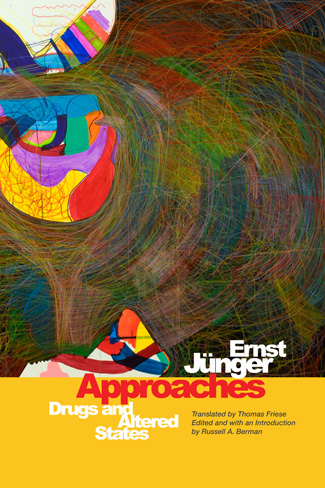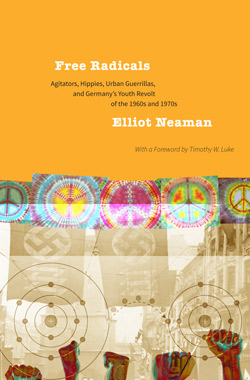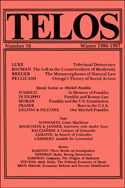By Russell A. Berman · Monday, January 9, 2023  Before Timothy Leary and Baba Ram Dass, before Ken Kesey and Neal Cassady, the Merry Pranksters and their acid test, before the Grateful Dead . . . there was Ernst Jünger, adventurer in mind expansion and psychedelic space. Before Timothy Leary and Baba Ram Dass, before Ken Kesey and Neal Cassady, the Merry Pranksters and their acid test, before the Grateful Dead . . . there was Ernst Jünger, adventurer in mind expansion and psychedelic space.
Jünger stands out in this counterculture company with his thoroughly different background. As a teenager, he ran away from his German home to join the French Foreign Legion. In the First World War he was wounded multiple times and became a highly decorated officer in the Kaiser’s army. He would serve again on the German side in the Second World War—even though he published a famous anti-Hitler novel.
Yet alongside that military career, Jünger spent a lifetime with consciousness-enhancing experiments—hashish, cocaine, and morphine until he worked his way to LSD, psilocybin, and peyote. Jünger invites us to follow him on that mind-blowing path in an autobiography of his life with drugs: Approaches: Drugs and Altered States. This wide-ranging account documents an array of drug experiences, placing them in a richly intellectual context of cultural transformations and the literary history of drug use—Baudelaire, De Quincey, and Huxley—as well as art historical reflections on hallucinatory elements in Van Gogh, cubism, and surrealism. A great intellect meets psychedelics.
Continue reading →
By Telos Press · Monday, November 7, 2016  “There were actually at least two countercultures in 1968. The street mutineers dreamed of a political revolution, which was acted out as theater, using old scripts. In the second, politics became personal; emancipation came in the form of consumer choices. The first was collectivist and failed, the second was libertarian, individualistic, futuristic, and carried the day. In the United States Stewart Brand, the visionary who founded The Whole Earth Catalog in 1968, pithily described the difference as between ‘Berkeley and Stanford’: ‘Around Berkeley, it was Free Speech Movement, “power to the people.” . . .’ In Germany this kind of technology-as-revolution mindset was much more difficult to launch, given the entrenched romantic aversion to technology in the counterculture. . .” “There were actually at least two countercultures in 1968. The street mutineers dreamed of a political revolution, which was acted out as theater, using old scripts. In the second, politics became personal; emancipation came in the form of consumer choices. The first was collectivist and failed, the second was libertarian, individualistic, futuristic, and carried the day. In the United States Stewart Brand, the visionary who founded The Whole Earth Catalog in 1968, pithily described the difference as between ‘Berkeley and Stanford’: ‘Around Berkeley, it was Free Speech Movement, “power to the people.” . . .’ In Germany this kind of technology-as-revolution mindset was much more difficult to launch, given the entrenched romantic aversion to technology in the counterculture. . .”
Continue reading →
By Monika Lemke · Tuesday, April 7, 2015  Premised on the Left’s fundamental inability to dissociate itself from the ideals of the bourgeois revolution, Zygmunt Bauman’s “The Left as the Counter-Culture of Modernity” introduces the notion of reconstituting “the Left as the counter-culture of modernism,” rather than as the “counter-culture of capitalism.” Bauman makes the case for this repositioning because, in his view, there is no historical agent to carry out an anti-capitalist program. However, by continuing to defend and maintain the Left’s core values of individual autonomy and political democracy, Bauman believes that the Left can identify the barriers preventing their realization in the present neoliberal paradigm. Bauman recounts the Left’s courtship with various strategies, namely, the heterodox critique of capitalist practice and professed affinity with the industrial working class, and the recent flirtation with postmodern theory. By examining each as it addresses the present historical paradigm, he emphasizes the need to rehabilitate the values of the Leftist program and search for alternative strategies to realize them. Premised on the Left’s fundamental inability to dissociate itself from the ideals of the bourgeois revolution, Zygmunt Bauman’s “The Left as the Counter-Culture of Modernity” introduces the notion of reconstituting “the Left as the counter-culture of modernism,” rather than as the “counter-culture of capitalism.” Bauman makes the case for this repositioning because, in his view, there is no historical agent to carry out an anti-capitalist program. However, by continuing to defend and maintain the Left’s core values of individual autonomy and political democracy, Bauman believes that the Left can identify the barriers preventing their realization in the present neoliberal paradigm. Bauman recounts the Left’s courtship with various strategies, namely, the heterodox critique of capitalist practice and professed affinity with the industrial working class, and the recent flirtation with postmodern theory. By examining each as it addresses the present historical paradigm, he emphasizes the need to rehabilitate the values of the Leftist program and search for alternative strategies to realize them.
Continue reading →
|
|
 Before Timothy Leary and Baba Ram Dass, before Ken Kesey and Neal Cassady, the Merry Pranksters and their acid test, before the Grateful Dead . . . there was Ernst Jünger, adventurer in mind expansion and psychedelic space.
Before Timothy Leary and Baba Ram Dass, before Ken Kesey and Neal Cassady, the Merry Pranksters and their acid test, before the Grateful Dead . . . there was Ernst Jünger, adventurer in mind expansion and psychedelic space. 
 Premised on the Left’s fundamental inability to dissociate itself from the ideals of the bourgeois revolution, Zygmunt Bauman’s “The Left as the Counter-Culture of Modernity” introduces the notion of reconstituting “the Left as the counter-culture of modernism,” rather than as the “counter-culture of capitalism.” Bauman makes the case for this repositioning because, in his view, there is no historical agent to carry out an anti-capitalist program. However, by continuing to defend and maintain the Left’s core values of individual autonomy and political democracy, Bauman believes that the Left can identify the barriers preventing their realization in the present neoliberal paradigm. Bauman recounts the Left’s courtship with various strategies, namely, the heterodox critique of capitalist practice and professed affinity with the industrial working class, and the recent flirtation with postmodern theory. By examining each as it addresses the present historical paradigm, he emphasizes the need to rehabilitate the values of the Leftist program and search for alternative strategies to realize them.
Premised on the Left’s fundamental inability to dissociate itself from the ideals of the bourgeois revolution, Zygmunt Bauman’s “The Left as the Counter-Culture of Modernity” introduces the notion of reconstituting “the Left as the counter-culture of modernism,” rather than as the “counter-culture of capitalism.” Bauman makes the case for this repositioning because, in his view, there is no historical agent to carry out an anti-capitalist program. However, by continuing to defend and maintain the Left’s core values of individual autonomy and political democracy, Bauman believes that the Left can identify the barriers preventing their realization in the present neoliberal paradigm. Bauman recounts the Left’s courtship with various strategies, namely, the heterodox critique of capitalist practice and professed affinity with the industrial working class, and the recent flirtation with postmodern theory. By examining each as it addresses the present historical paradigm, he emphasizes the need to rehabilitate the values of the Leftist program and search for alternative strategies to realize them. 






